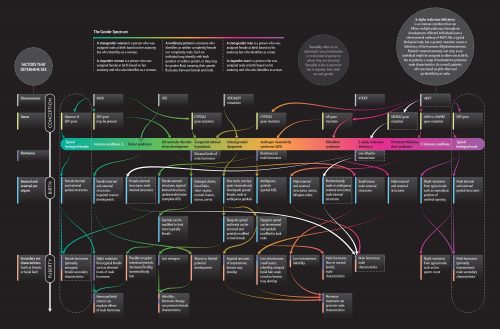Wanna read some classic science fiction from 1958? No you don’t. You will decide that all men are evil; you won’t believe that this monstrosity got written at all, and that it was then actually published. It’s The Queen Bee, by Randall Garrett. The basic story: spaceship with a handful of men and women gets stranded on an earth-like, habitable planet. The men of the crew immediately announce that their destiny is to populate the world, with the assistance, willing or not, of the women. There’s a law, Brytell’s Law, that says they must. They need the women, because they’ll have no purpose in life if they can’t procreate. And they have rules about how to maximize genetic diversity that require pairing off in strict rotation.
You can tell this is some kind of perverse male fantasy.
But there’s a problem: one of the women refuses to be used this way! She’s also useless (she’s a clothing designer, and not useful clothes, but frilly flimsy women’s clothing), and violent in her resistance. So the men come up with a solution. I read it.
Damn. It’s a pdf. I can’t set it on fire, and I can’t afford to throw my computer in a dumpster with a bucket of napalm and set it on fire. Maybe it would make more sense to gather up all the men and throw them in that dumpster with the napalm, me included. Gah. Unclean.
Thanks, Gary Farber. You’ve destroyed the last trace of hope I have in humanity. Although I suppose Randall Garrett is more to blame.





